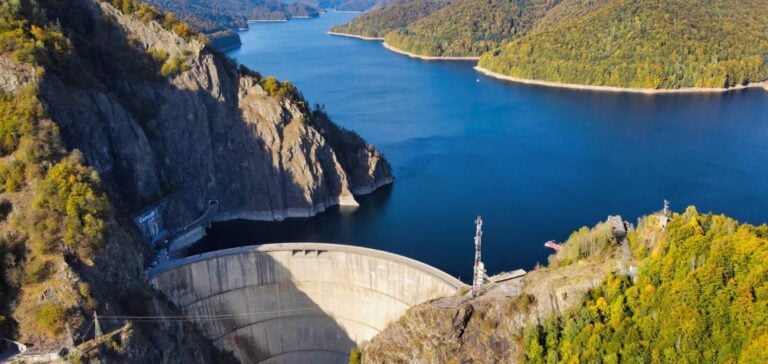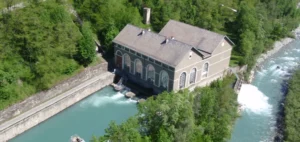Manufacturing and services company KONČAR – Engineering Ltd, in collaboration with Elektromontaj S.A., has signed a major contract to revitalize the Vidraru hydroelectric power plant in Romania. The 188 million euro project, awarded following a competitive international tender, aims to completely modernize this key facility in the region. The consortium will tackle the design, production, delivery and dismantling of the old equipment, as well as the installation of new state-of-the-art devices, including the testing and commissioning phases. KONČAR’s contribution amounts to almost 80 million euros. Romania is thus increasing its potential in renewable energies, following the example of investments in solar power.
A historic pillar of Romanian energy
The Vidraru hydroelectric power plant, strategically located on the Argeș river, is a fundamental element of the energy network. Built in 1961 and commissioned in 1966, it now requires modernization to improve efficiency and extend its operational life. This ambitious project will not only boost Romania’s energy capacity, but also contribute to the stability and sustainability of its electricity infrastructure.
Partnerships and economic implications
The project is managed by S.P.E.E.H. HIDROELECTRICA, Romania’s largest electricity producer, based in Bucharest. HIDROELECTRICA, with installed hydropower capacity of 6.3 GW and net annual production of 15.6 TWh, plays a crucial role in the country’s energy supply. HIDROELECTRICA’s commitment to this project reflects its strategic importance for the country, both in terms of energy and the economy.
Analysis and future prospects
This modernization of the Vidraru power plant is a prime example of the growing importance of investment in ageing energy infrastructure in Eastern Europe. By investing in projects of this scale, Romania is ensuring greater energy security while meeting today’s environmental challenges. Updating the plant’s equipment and increasing its efficiency will also help to reduce carbon emissions, bringing Romania into line with the European Union’s climate objectives.
The Vidraru project could also stimulate the local economy, generating jobs and promoting the transfer of skills and advanced technologies. What’s more, this initiative could attract further foreign investment in Romania’s energy sector, positioning the country as a key player in the field of renewable energies in Europe.
The completion of this project will mark a milestone in Romania’s energy history, symbolizing not only modernization but also sustainability and innovation in the energy sector.






















